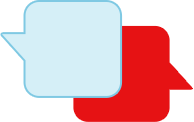 User Portlet
User Portlet

Carlos Martin is a student at the Columbia University School of Engineering and Applied Science. He intends to pursue a major in Applied Physics and Applied Mathematics with a minor in Computer Science. Carlos is a member of the Egleston Scholars Program, which recognizes exceptional undergraduate students from Columbia Engineering. The program provides students with research opportunities, enhanced advising, and faculty mentorship.
Last summer, Carlos worked at Canadas national laboratory for particle and nuclear physics (TRIUMF), home to the worlds largest cyclotron. His work focused on laser ion sources and laser resonance ionization spectroscopy, a method for selectively generating radioactive ion beams used in particle and nuclear physics experiments.
This summer he will be working at the Columbia Lightwave Research Laboratory and the Columbia Plasma Physics Laboratory. The Lightwave Research Lab investigates data capacity and routing in optical networks, which use light signals to transmit information. Carlos will be investigating optical computing architectures and developing the labs simulator. In the Plasma Physics Lab, which studies plasma instabilities and conducts controlled fusion energy experiments, he will be working on developing a mathematical model and computer simulation of an electron-positron plasma in a dipole field.
Carlos is deeply interested in fundamental physics research, particularly in the fields of cosmology and quantum gravity. He is also interested in exploring artificial general intelligence through reinforcement learning techniques and evolutionary algorithms. He has worked with artificial neural networks, discretization schemes for electromagnetism, Eulerian and Lagrangian methods for fluid dynamics, and rigid body dynamics using numerical integration.
Carlos attended the 2015 Wolfram Science Summer School program and worked on a research project involving the application of functional analysis to cellular automata. The goal of this project was to enhance genetic algorithms that search for the best rule to perform a computation by studying the relationship between the structure of a rule and its large-scale behavior.
